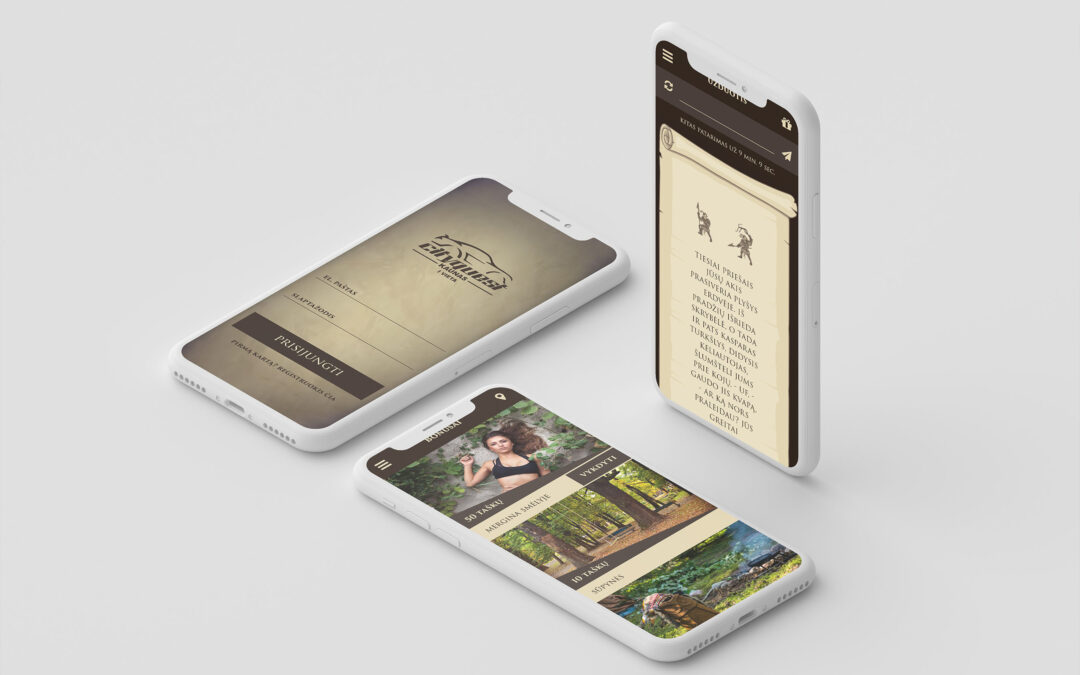“Kids, today we’re going to talk about medieval history.” For many parents and teachers, this sentence can be met with a collective sigh. How do you turn dry historical facts, dates, and names into something that can capture the imagination of a modern, tech-savvy child? How do you compete with colorful video games and fast-paced social media content? It often feels like a losing battle.
The answer isn’t to ban technology, but to use it creatively. Imagine if a history lesson moved from the classroom to the streets of Kaunas’ Old Town, and textbook pages were replaced by an interactive adventure on your smartphone. This is the exact experience offered by the innovative city game CityQuest.lt, which turns Kaunas into a living history book and answers the age-old question: how do we make children fall in love with learning?
Why History Books Are Losing the Battle Against TikTok
Before we look for a solution, we must understand the core of the problem. Why does history often seem so boring to kids?
- Lack of Personal Connection: The date “1410” or the name “Vytautas the Great” are abstractions to a child. It’s hard for them to understand why these things should be interesting to them in the 21st century.
- Passive Information Consumption: Traditional learning is often a one-way street—the teacher talks, the child listens. There’s no interaction, no engagement.
- Absence of Context: Dry facts without a living story, without emotion, without a legend—it’s like a building’s blueprint without the building itself. Kids need a narrative, not a data sheet.
In this battle, fast, visual, and interactive content wins. But this doesn’t mean history is doomed. It simply means it needs to be presented differently.
The Secret Isn’t Information, It’s Experience
Children, just like adults, learn best through experience. Play is a natural human state through which we explore the world, solve problems, and absorb new knowledge. That’s precisely why gamification is such a powerful tool. When we turn the learning process into a game, we activate curiosity, excitement, and the desire to win. The duty to learn disappears, and in its place, the desire to play emerges.
CityQuest.lt: 4 Ways Kaunas Becomes a Living Classroom
CityQuest.lt acts as an interactive guide that perfectly blends the real world with a virtual story. This Kaunas game solves the problem of children’s boredom by leveraging several key elements.
1. From Passive Listener to Active Explorer
Instead of passively listening to a tour guide, kids become history detectives themselves. They receive a mission, and their tools are a smartphone and their own observant eyes. Do they need to find a special symbol on a building’s wall? Or perhaps decipher an old inscription on a monument? Every solved puzzle provides an incredible sense of accomplishment. Imagine the joy in a child’s eyes when they themselves, not a textbook, “unlock” the next part of the story.
2. History You Can Touch and Feel
It’s one thing to see a picture of Kaunas Castle in a book; it’s another thing entirely to stand beside its ancient walls while carrying out a mission related to its defense. CityQuest.lt routes lead through the most famous places in Kaunas. Kids don’t just see the landmarks; they interact with them. The cold stone of the castle feels different in your hand when you know you’re on an important quest. This physical presence creates a deep and lasting connection with the historical environment.
3. Legends and Mysteries: The Best Motivation Engine
What’s more interesting: the importance of trade routes or mysterious legends about city ghosts? CityQuest.lt masterfully weaves intriguing Kaunas stories and tales into its routes. Did you know you might encounter a ghostly kitten in Santaka Park? Saving it becomes a far more motivating task than reading chronicles. These unexpected and playful elements make history come alive, full of mystery and a little bit of magic.
4. Unforgettable Family Time: Teamwork for Everyone
This isn’t just an educational activity for kids—it’s high-quality entertainment for the whole family. Instead of trying to manage bored children, parents get involved in the teamwork themselves, becoming advisors, helpers, and sometimes even students. The family solves puzzles together, searches for answers, and celebrates shared victories. It’s a fantastic way to spend active leisure time outdoors, strengthening family bonds and creating shared memories that will last longer than any history lesson.
What Are the Real Benefits After the Adventure Ends?
When immersed in the game, the benefits come naturally and effortlessly. Children don’t just have a fun time; they gain real skills:
- Long-Term Knowledge Retention: Knowledge acquired through experience is remembered far better than rote-memorized dates.
- Critical Thinking Skills: The puzzles are not straightforward. They require logic, observation, and problem-solving skills—abilities essential in all areas of life.
- Healthy Physical Activity: Kids willingly walk several kilometers without even noticing because they are driven by curiosity.
- A Deeper Love for Their City: A city that has been explored and understood becomes closer and more interesting. It’s no longer just a collection of gray buildings but a place full of secrets and stories.
Turn a History Lesson into Your Best Family Memory
If you want your children to love history and explore their city with enthusiasm, stop forcing them to read—invite them to play. Let them become the heroes of Kaunas’ legends and the discoverers of its secrets. You’ll be amazed at how much they can learn when learning becomes the most exciting game.
Don’t wait! Visit www.cityquest.lt, choose your route, and embark on a journey through time in Kaunas today!

